We test and compare oversized derailleur cages from Kogel and CeramicSpeed
Today we bring you one of those ultra-exclusive component tests that we usually see on pro bikes. We are talking about the famous oversized rear pulley boxes. These are luxury components due to their high price and we are going to evaluate them to try to assess their advantages.
We have had the opportunity to thoroughly test the models of the leading brands in the sector: the Kogel Kolossos and the CeramicSpeed OSPW System.

Oversized pulleys and ceramic bearings: key points
When we started to see, especially on professional peloton bikes, these eye-catching pulley boxes, many of us wondered what they had to offer compared to the standard systems on high-end groupsets. And the answer was that they seek to reduce friction in several ways. On one hand, by using ceramic bearings of the highest quality. The brands we are talking about today are fully specialised in the manufacture of these bearings, and they manufacture them for any part of the bike, including their own ceramic bottom bracket cartridges, for example.
On the other hand, the oversized pulleys themselves, especially the lower pulley, are intended to minimise friction. With these, each link in the chain turns less tightly and at the same time, the pulley bearing itself turns more slowly at the same cadence compared to a traditional pulley.
RECOMENDADO

Brujulabike wishes you a Merry Christmas

25 cycling gifts ideas to get it right
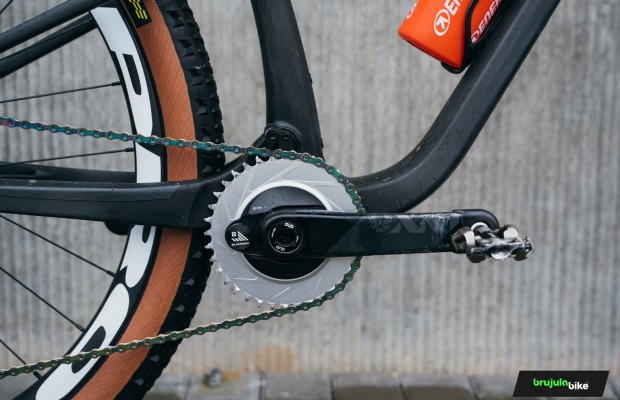
Do you need a power meter to become a better cyclist?
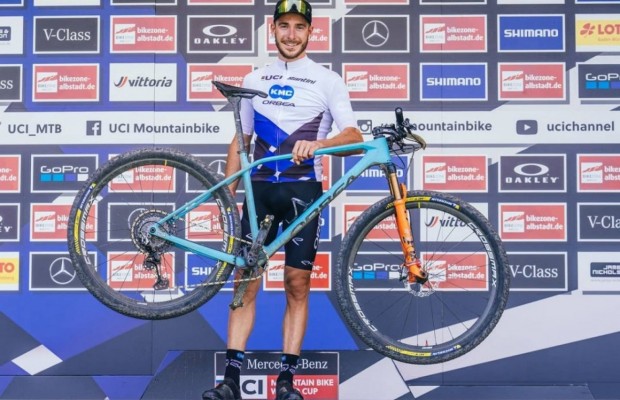
Our 7 favourite XC hardtails of 2022
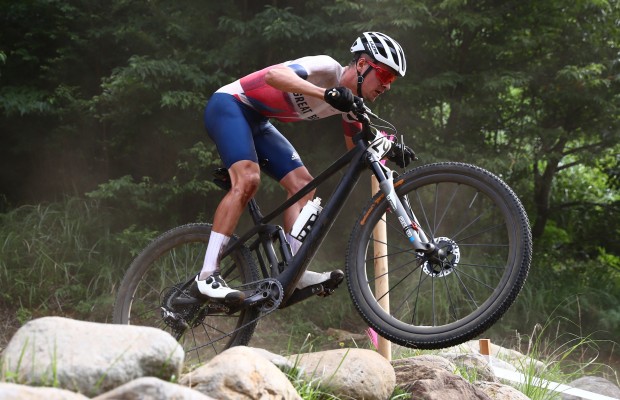
MTB XCO European Championships 2022: favorites, schedule and where to watch it live online
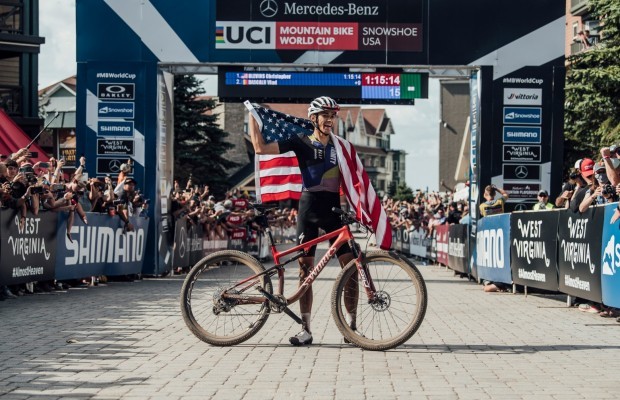
Snowshoe XCO World Cup 2022: favorites, schedules and how to watch it
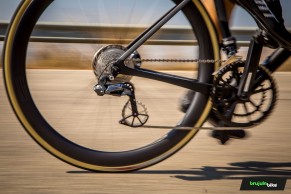
Many will ask if this friction reduction is real, and the answer is "absolutely yes". We noticed it immediately when we mounted the system and tested it with the bike on the rack. The most striking effect is that when we stop applying force to the cranks by hand, they continue to rotate for a certain period of time without our intervention. This does not happen with the standard pulleys and the cranks stop almost immediately.
If the rest of the bearings on the bike are ceramic bearings of similar quality, the effect is multiplied.
With this simple test it is clear that the friction reduction is real, but the next question is whether we will notice it when riding. And that's a little more difficult to feel. CeramicSpeed claims that the reduction is at least 2.4 watts, and noticing that when a cyclist can develop, depending on his condition, several hundred watts is not easy.
In any case, these products fall into what is known as "marginal gains", so popularised in recent years by the Sky team, which has been able to make the most of the sum of these small advantages put together.
CeramicSpeed OSPW System
CeramicSpeed uses this name to refer to its oversized pulley wheel system. There are many versions compatible with most road and mountain derailleurs. In addition, there are versions with 3D printed titanium pulleys at prices that are truly breathtaking.
We have done our tests with a bike that is equipped with an Ultegra Di2 groupset, so we have used the compatible chainset. This model has a 13-tooth upper pulley and a huge 19-tooth lower pulley. The brake hanger we tested was the "coated" version, with a special treatment on the bearing races which, according to the brand, improves smoothness and is better protected against corrosion, so that, in this version, they offer a lifetime guarantee.
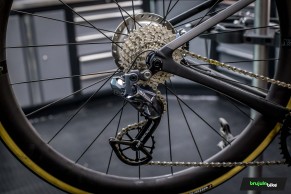
With the lever in our hands, we are struck by the very fine rotation of its pulleys and the lightness in relation to its size, all thanks to its carbon construction and its lightened aluminium pulleys.
The ceramic bearings have a small lateral movement which, considering the quality of the product, we assume is intentional, probably for better adaptation to the different positions of the chain. Also their teeth, compared to those of the Kogel Kolossos pulley, are rather short, especially on the lower pulley.
The disassembly of the original case and its assembly on the Ultegra Di2 rear derailleur is very simple. All you have to do is remove the piece that acts as an end stop on the lever, so that the lever continues to rotate until the spring loses force. Then a pin is removed and the lever with the spring comes out.

The assembly of the CeramicSpeed OSPW is just the other way round, once the spring has been moved from one pin to the other, there are several points for anchoring the spring so that its hardness can be varied. The only difference when mounting the pin is that instead of a removable stop it has a fixed one in the form of a ramp, so that by putting it in place and taking it to the place for the spring to take tension, it is easily placed so that the pin can be put in place and it is fixed.
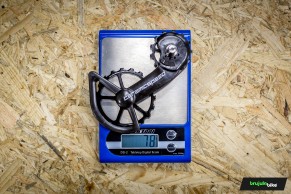
In terms of weight, the CeramicSpeed chainset weighed 78 grams, and the rear derailleur weighed 5 grams more. In addition, at the time of assembly we were asked to add 4 more links to the chain, which increases the weight to 13 or 14 grams. A tiny figure, but one that weight guys will be pleased to know.
Once in gear with the CeramicSpeed OSPW paddle, we realise that the outstanding precision of the Shimano Ultegra Di2 shifter is not impaired at all. Shifting is just as effective and instantaneous as it is with the original pawl.

What we do notice is that the noise level of the drivetrain decreases slightly. The Shimano drivetrain is already very quiet, but in certain combinations with the cross chain it does emit a certain noise that is clearly attenuated if we use the CeramicSpeed OSPW. This caught our attention because a priori an aluminium pulley is theoretically noisier than the original ones, but the quality of this product makes the opposite happen.
Kogel Kolossos
The American company Kogel, which also specialises in high-quality bearings, has opted for CNC aluminium construction. They claim that with this construction, their housing is stiffer than an original standard pulley housing. In fact, they claim that it is twice as stiff as the original box and three times as stiff as its main competitor in this type of system.
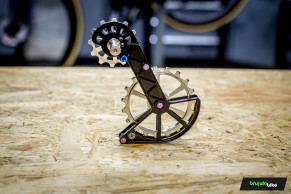
In the case of the Kogel Kolossos we have a 12-tooth upper pulley and a 19-tooth lower pulley. And the appearance it offers is absolutely robust and its mechanised parts, both the case and the pulleys, are marvellous. In this case the pulleys have longer teeth for better retention of the chain and do not have the slightest lateral play, but the rotation of these is exquisite.
The Kogel Kolossos is available in different colours and there is also a custom version in which it is possible to configure it with different colours in each of its parts. Everything is customisable, from every part of the temple to the last screw, so you can have the aesthetics of your choice.
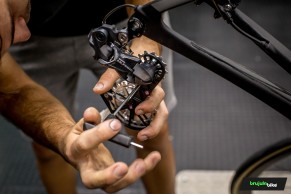
The assembly of the Kogel Kolossos is, like its rival in this comparison, very simple. In this case, it does have a removable end stop, just like the original Shimano lever. The Kogel Kolossos has 3 holes to anchor the spring, so we can vary its hardness. This is a feature that can come in handy for use on a gravel bike or if you ride on very rough roads.
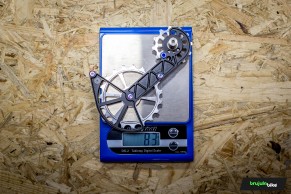
In terms of weight, despite its robust aluminium construction, the crank weighed 83 grams, so the Ultegra Di2 rear derailleur gained 11 grams with the cassette change, and we also had to add two links to the chain, so the weight increase is about 15 grams in total.
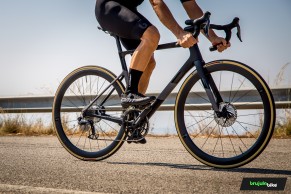
When we got on the move we could see that, as with the CeramicSpeed, the shifting precision is still perfect.
We've already mentioned that noticing the very slight reduction in friction on the move is practically impossible and would be more to do with suggestion than anything else.
But in this case the absence of noise is more than evident. There is only a slight metallic sound in forced positions of the chain with the large chainring and the largest sprocket, and slightly in the second one, when the chain enters the pulley at a certain angle. This is probably due to the more pronounced sprockets and the absence of the slightest play in the bearings. In any case, in all other combinations in which we do not cross the chain too much, with the Kogel Kolossos we have the quietest possible drivetrain.
CeramicSpeed OSPW vs Kogel Kolosos: final conclusions
Having tested both of them and having been riding with them for months, we have been able to draw several conclusions. The first is whether or not you need one of these oversized derailleur cages, and here we'll be clear. The wattage savings are real, but perhaps too low if you only go out a couple of times a week and don't ride very long routes. In any case, there is another factor that is even more important in terms of performance; the psychological factor. With one of these cages, you will notice at first glance that the chain rolls better and this means that as soon as you get on the bike the feeling of lightness in the pedalling is evident. Something that will undoubtedly help you.
If we go into the aesthetic section, this is where we could say that the full potential of these pulley boxes lies. With one of them installed on the rear derailleur, any bike changes its aesthetic profile and that is important for those of us who like bikes.
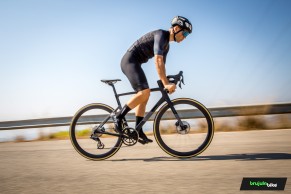
Regarding whether to choose the CeramicSpeed OSPW or the Kogel Kolosos, the dilemma is quite subjective and may come down to price and aesthetics, as they are very close in terms of performance.
The Kogel Kolosos is stiffer thanks to the alloy cage, it's around €150 cheaper and their warranty policy offers great peace of mind as if there's a problem they'll replace it no questions asked within the first year. In addition, Kogel has a great selection of colours that can best match your bike.
The CeramicSpeed OSPW, on the other hand, is 4 grams lighter and made of carbon, which is sure to win over carbon enthusiasts.
As we said, we are dealing with two exclusive components between which there are no differences in performance, so in this aspect you can be confident in choosing one or the other and focus on more mundane factors such as price, appearance, availability, etc.
CeramicSpeed OSPW System for Shimano 9100/9150 and 8000/8050 SS (Coated)
- Made of carbon
- Pulleys 13-19
- Shorter teeth
- Weight 78 g
- Variable warranty (watch out for the small print)
- Price: 549€
Kogel Kolossos, Shimano Oversized Derailleur Cage - Dura Ace R9100 and Ultegra R8000
- Made of aluminium
- Stiffer
- Pulleys 12-19
- Longer teeth
- Weight 83 g
- 2 year warranty (first year exchange without any questions) and the only manufacturer with an anti-corrosion warranty.
- Available in several colours
- Price: 399€